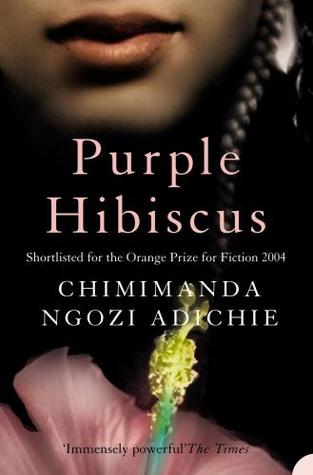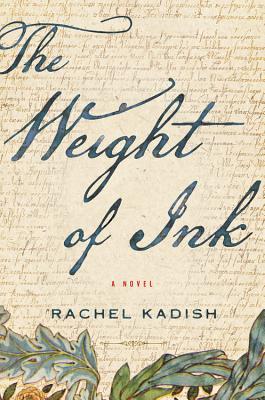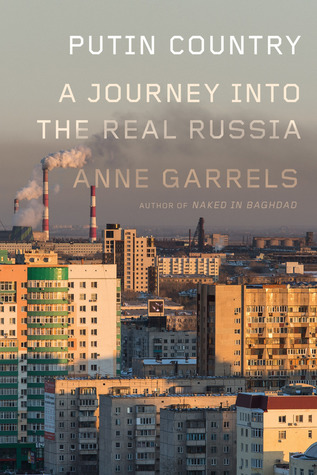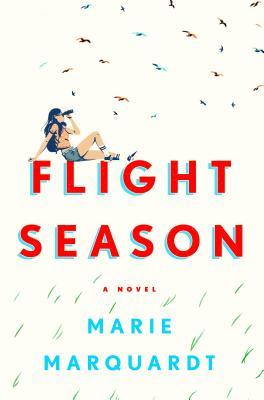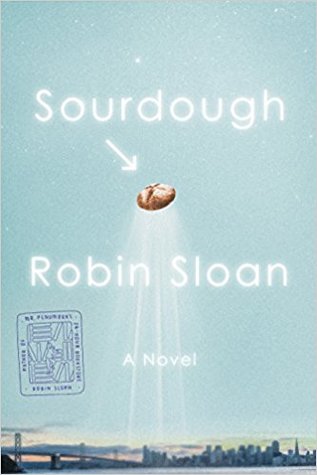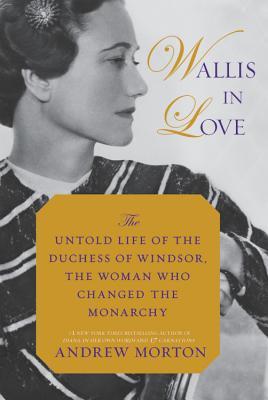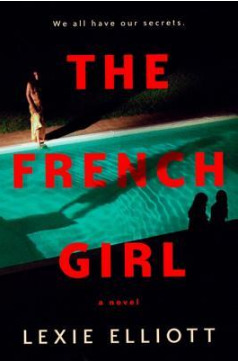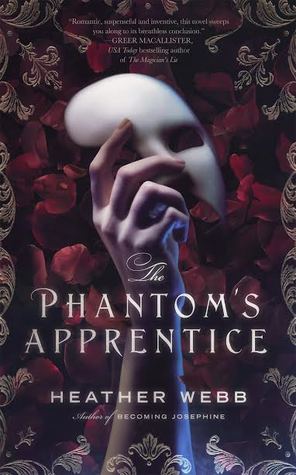I am very excited to share a special excerpt from "Next Year in Havana" by Chanel Cleeton. I loved, loved, loved this book and can't wait to share my review with you. Check it out tomorrow!
Chapter One
Elisa
Havana, 1959
“How long will we be gone?” my sister Maria asks.
“Awhile,” I answer.
“Two months? Six months? A year? Two?”
“Quiet.” I nudge her forward, my gaze darting around the departure area of Rancho-Boyeros Airport to see if anyone has overheard her question.
We stand in a row, the famous—or infamous, depending on who you ask—Perez sisters. Isabel leads the way, the eldest of the group. She doesn’t speak, her gaze trained on her fiancé, Alberto. His face is pale as he watches us, as we march out of the city we once brought to its knees.
Beatriz is next. When she walks, the hem of her finest dress swinging against her calves, the pale blue fabric adorned with lace, it’s as though the entire airport holds its collective breath. She’s the beauty in the family and she knows it.
I trail behind her, the knees beneath my skirts quivering, each step a weighty effort.
And then there’s Maria, the last of the sugar queens.
At thirteen, Maria’s too young to understand the need to keep her voice low, is able to disregard the soldiers standing in green uniforms, guns slung over their shoulders and perched in their eager hands. She knows the danger those uniforms bring, but not as well as the rest of us do. We haven’t been able to remove the grief that has swept our family in its unrelenting curl, but we’ve done our best to shield her from the barbarity we’ve endured. She hasn’t heard the cries of the prisoners held in cages like animals in La Cabaña, the prison now run by that Argentine monster. She hasn’t watched Cuban blood spill on the ground.
But our father has.
He turns and silences her with a look, one he rarely employs yet is supremely effective. For most of our lives, he’s left the care of his daughters to our mother and our nanny, Magda, too busy running his sugar company and playing politics. But these are extraordinary times, the stakes higher than any we’ve ever faced. There is nothing Fidel would love more than to make an example of Emilio Perez and his family—the quintessential image of everything his revolution seeks to destroy. We’re not the wealthiest family in Cuba, or the most powerful one, but the close relationship between my father and Batista is impossible to ignore. Even the careless words of a thirteen-year-old girl can prove deadly in this climate.
Maria falls silent.
Our mother walks beside our father, her head held high. She insisted we wear our finest dresses today, hats, and gloves, brushed our hair until it gleamed. It wouldn’t do for her daughters to look anything but their best, even in exile.
Defiant in defeat.
We might not have fought in the mountains, haven’t held weapons in our glove-covered hands, but there is a battle in all of us. One Fidel has ignited like a flame that will never be extinguished. And so we walk toward the gate in our favorite dresses, Cuban pride and pragmatism on full display. It’s our way of taking the gowns with us, even if they’re missing the jewels that normally adorn them. What remains of our jewelry is buried in the backyard of our home.
For when we return.
To be Cuban is to be proud—it is both our greatest gift and our biggest curse. We serve no kings, bow no heads, bear our troubles on our backs as though they are nothing at all. There is an art to this, you see. An art to appearing as though everything is effortless, that your world is a gilded one, when the reality is that your knees beneath your silk gown buckle from the weight of it all. We are silk and lace, and beneath them we are steel.
We try to preserve the fiction that this is merely a vacation, a short trip abroad, but the gazes following us around the airport know better—
Beatriz’s fingers wrap around mine for one blissful moment. Those olive green–clad sentries watch our every move. There’s something reassuring in her fear, in that crack in the facade. I don’t let go.
The world as we know it has died, and I do not recognize the one that has taken its place.
A sense of hopelessness overpowers the departure area. You see it in the eyes of the men and women waiting to board the plane, in the tired set of their shoulders, the shock etched across their faces, their possessions clutched in their hands. It’s present in the somber children, their laughter extinguished by the miasma that has overtaken all of us.
This used to be a happy place. We would welcome our father when he returned from a business trip, sat in these same seats three years earlier, full of excitement to travel to New York on vacation.
We take our seats, huddling together, Beatriz on one side of me, Maria on the other. Isabel sits apart from us, her pain a mantle around her shoulders. There are different degrees of loss here, the weight of what we leave behind inescapable.
My parents sit with their fingers intertwined, one of the rare displays of physical affection I’ve ever seen them partake in, worry in their eyes, grief in their hearts.
How long will we be gone? When will we return? Which version of Cuba will greet us when we do?
We’ve been here for hours now, the seconds creeping by with interminable slowness. My dress itches, a thin line of sweat running down my neck. Nausea rolls around in my stomach, an acrid taste in my mouth.
“I’m going to be sick,” I murmur to Beatriz.
She squeezes my fingers. “No, you’re not. We’re almost there.”
I beat the nausea back, staring down at the ground in front of me. The weight of the stares is pointed and sharp, and at the same time, it’s as if we exist in a vacuum. The sound has been sucked from the room save for the occasional rustle of clothing, the stray sob. We exist in a state of purgatory, waiting, waiting—
“Now boarding . . .”
My father rises from his seat on creaky limbs; he’s aged years in the nearly two months since President Batista fled the country, since the winds of revolution drifted from the Sierra Maestra to our corner of the island. Emilio Perez was once revered as one of the wealthiest and most powerful men in Cuba; now there’s little to distinguish my father from the man sitting across the aisle, from the gentleman lining up at the gate. We’re all citizens of no country now, all orphans of circumstance.
I reach out and take Maria’s hand with my spare one.
She’s silent, as though reality has finally sunk in. We all are.
We walk in a line, somber and reticent, making our way onto the tarmac. There’s no breeze in the air today, the heat overpowering as we shuffle forward, the sun beating down on our backs, the plane looming in front of us.
I can’t do this. I can’t leave. I can’t stay.
Beatriz pulls me forward, a line of Perez girls, and I continue on.
We board the plane in an awkward shuffle, the silence cracking and splintering as hushed voices give way to louder ones, a cacophony of tears filling the cabin. Wails. Now that we’ve escaped the departure area, the veneer of civility is stripped away to something unvarnished and raw—
Mourning.
I take a seat next to the window, peering out the tiny glass, hoping for a better view than that of the airport terminal, hoping . . .
We roll back from the gate with a jolt and lurch, silence descending in the cabin. In a flash, it’s New Year’s Eve again and I’m standing in the ballroom of my parents’ friends’ house, a glass of champagne in one hand. I’m laughing, my heart so full. There’s fear lingering in the background, both fear and uncertainty, but there’s also a sense of hope.
In minutes, my entire world changed.
President Batista has fled the country! Long live a free Cuba!
Is this freedom?
We’re gaining speed now, hurtling down the runway. My body heaves with the movement, and I lose the battle, grabbing the bag in the seat pocket in front of me, emptying the contents of my stomach.
Beatriz strokes my back as I hunch over, as the wheels leave the ground, as we soar into the sky. The nausea hits me again and again, an ignominious parting gift, and when I finally look up, a startling shock of blue and green greets me, an artist’s palette beneath me.
When Christopher Columbus arrived in Cuba, he described it as the most beautiful land human eyes had ever seen. And it is. But there’s more beyond the sea, the mountains, the clear sky. There’s so much more that we leave behind us.
How long will we be gone?
A year? Two?
Ojalá.
Marisol
January 2017
When I was younger, I begged my grandmother to tell me about Cuba. It was a mythical island, contained in my heart, entirely drawn from the version of Cuba she created in exile in Miami and the stories she shared with me. I was caught between two lands—two iterations of myself—the one I inhabited in my body and the one I lived in my dreams.
We’d sit in the living room of my grandparents’ sprawling house in Coral Gables, and she’d show me old photos that had been smuggled out of the country by intrepid family members, weaving tales about her life in Havana, the adventures of her siblings, painting a portrait of a land that existed in my imagination. Her stories smelled of gardenias and jasmine, tasted of plantains and mamey, and always, the sound of her old record player. Each time she’d finish her tale she’d smile and promise I would see it myself one day, that we’d return in grand style, reopening her family’s seaside estate in Varadero and the elegant home that took up nearly the entire block of a tree-lined street in Havana.
When Fidel dies, we’ll return. You’ll see.
And finally, after nearly sixty years of keeping Cubans in suspense, of false alarms and hoaxes, he did die, outlasting my grandmother by mere months. The night he died, my family opened a bottle of champagne my great-grandfather had bought nearly sixty years ago for such an occasion, toasting Castro’s demise in our inimitable fashion. The champagne, sadly, like Fidel himself, was past its prime, but we partied on Calle Ocho in Miami until the sun rose, and still—
Still we remain.
His death did not erase nearly sixty years of exile, or ensure a future of freedom. Instead I’m smuggling my grandmother’s ashes inside my suitcase, concealed as jars in my makeup case, honoring her last request to me while we pray, hope, wait for things to change.
When I die, take me back to Cuba. Spread my ashes over the land I love. You’ll know where.
And now sitting on the plane somewhere between Mexico City and Havana, armed with a notebook filled with scribbled street names and places to visit, a guidebook I purchased off the Internet, I have no clue where to lay her to rest.
They read my grandmother’s will six months ago, thirty family members seated in a conference room in our attorney’s office on Brickell. Her sisters were there—Beatriz and Maria. Isabel passed away the year before. Their children came with their spouses and their children, the next generations paying their respects. Then there was my father—her only child—my two sisters, and me.
The main parts of her will were fairly straightforward, no major surprises to be expected. My grandfather had died over two decades earlier and turned the family sugar business over to my father to run. There was the house in Palm Beach, which went to my sister Daniela. The farm in Wellington and the horses were left to my sister Lucia, the middle child. And I ended up with the house in Coral Gables, the site of so many imaginary trips to Cuba.
There were monetary bequests, and artwork, lists upon lists of items read by the attorney in a matter-of-fact tone, his announcements met with the occasional tear or exclamation of gratitude. And then there was her final wish—
Grandparents aren’t supposed to play favorites, but my grandmother never played by anyone else’s rules. Maybe it was the fact that I came into the world two months before my mother caught my father in bed with a rubber heiress. Lucia and Daniela had years of family unity before the Great Divorce, and after that, they had a bond with my mother I never quite achieved. My early years were logged between strategy sessions at the lawyers’ offices, shuttled back and forth between homes, until finally my mother washed her hands of it all and went back to Spain, leaving me under the care of my grandmother. So perhaps because I was the daughter she never had, yet raised as her own, it made sense that she charged me with this—
No one in the family questioned it.
From her sisters, I received a list of addresses—including the Perez estate in Havana and the beach house no one had seen in over fifty years. They put me in contact with Ana Rodriguez, my grandmother’s childhood best friend. Despite the passage of time, she’d been gracious enough to offer to host me for the week I’d be in Cuba. Perhaps she could shed some light on my grandmother’s final resting place.
You always wanted to see Cuba, and it’s my greatest regret that we were unable to do so in my lifetime. I am consoled, at least, by the image of you strolling along the Malecón, the spray of salt water on your face. I imagine you kneeling in the pews of the Cathedral of Havana, sitting at a table at the Tropicana. Did I ever tell you about the night we snuck out and went to the club?
I always dreamed Fidel would die before me, that I would return home. But now my dream is a different one. I am an old woman, and I have come to accept that I will never see Cuba again. But you will.
To be in exile is to have the things you love most in the world—the air you breathe, the earth you walk upon—taken from you. They exist on the other side of a wall—there and not—unaltered by time and circumstance, preserved in a perfect memory in a land of dreams.
My Cuba is gone, the Cuba I gave to you over the years swept away by the winds of revolution. It’s time for you to discover your own Cuba.
I slip the letter back into my purse, the words blurring together. It’s been six months, and yet the ache is still there, intensified by the moments when I feel her loss most acutely, when she should be beside me and is not.
The sight of the merenguitos she would make me on special occasions, their sugary taste dissolving on my tongue in a cloud of white powder, the sound of my childhood—our musical icons: Celia Cruz, Benny Moré, and the Buena Vista Social Club—and now this, the wheels of the airplane touching down on Cuban soil.
I miss my grandmother.
Tears spill onto my cheeks. It’s not merely the absence of her; it’s this feeling of connection as the airplane taxis down the same runway that carried her away from Cuba nearly sixty years ago.
I stare out the window, treated to my first glimpse of José Martí International Airport. At first glance, it looks like the countless Caribbean airports I’ve flown through on vacations in my life. But underneath it all there’s a sense of recognition and a thrill that runs through me. A sigh that escapes my body as though I’ve been holding my breath and can finally exhale.
It’s that sensation of being away for a long time and returning to your house, the sight of it greeting you—both familiar and changed—stepping through the doorway, dropping your bags on the ground next to you with a sense of completion, your journey over, and taking in your surroundings, surveying all you left behind, and thinking—
I am home.

